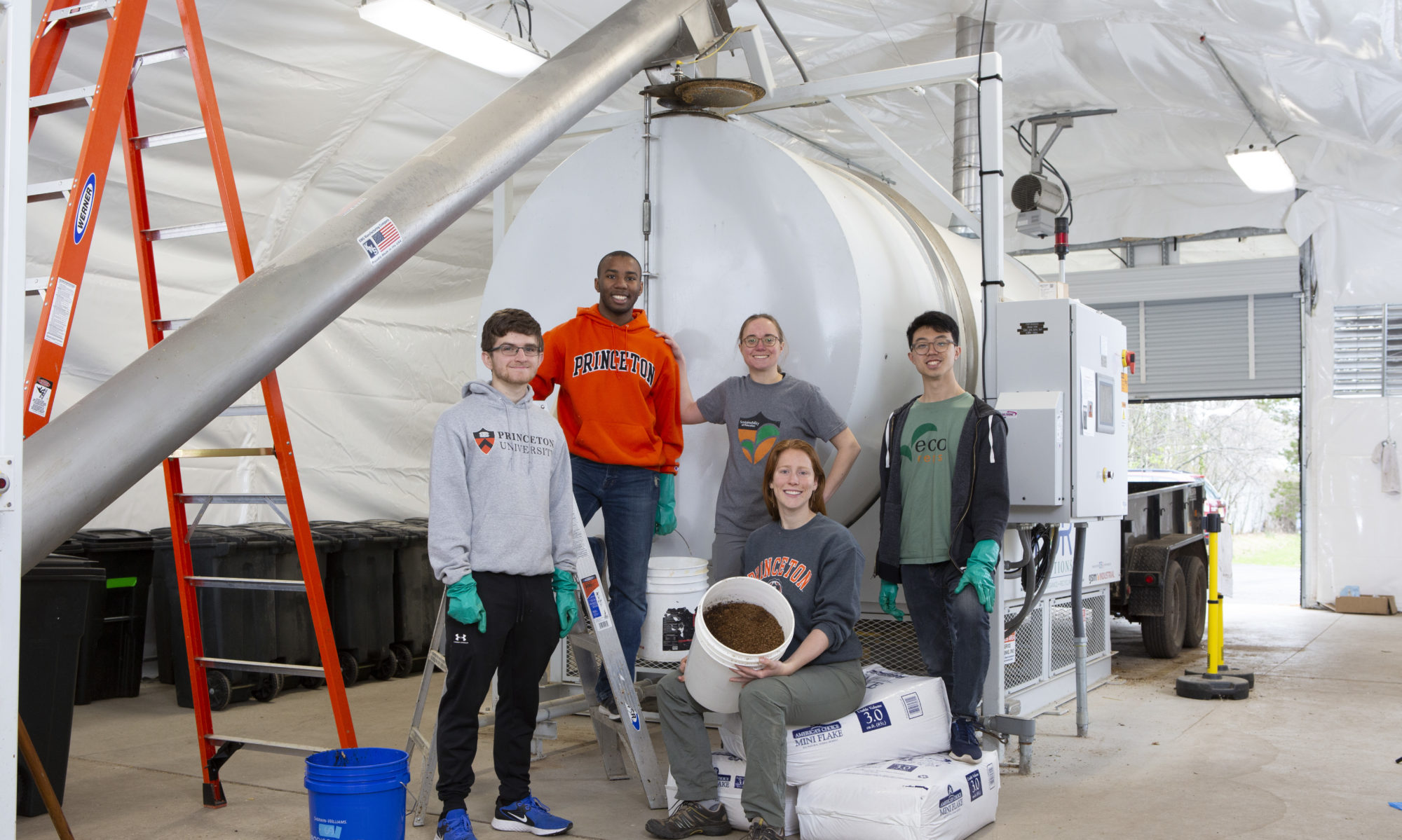Happy dog days of summer everyone,
In about a month, classes at Princeton will resume, but before we head into the new academic year, the ComPOSTer caught up with one of the S.C.R.A.P Lab’s most recent alumni – Milan Eldridge ’20!

I started working at the S.C.R.A.P. Lab at the beginning of my spring semester during my senior year. After becoming more involved with sustainability on campus, I wanted to continue to explore ways that I could be involved with sustainability within the campus community. I also wanted to learn more about sustainability on a larger scale so that I could carry what I had learned with me after graduation.
During my time on campus, I had seen the university change the company through which they composted. All of a sudden, we weren’t allowed to compost everything we had previously been allowed to compost in the dining halls. Soon, after spending some time in the Frist Late Meal Gallery, I started seeing bins labeled ‘S.C.R.A.P. Lab’. For a long time, I had no clue what the acronym stood for, only that we were meant to put our compost in the bin. After reading more about the S.C.R.A.P. Lab, I thought it would be a great opportunity to expand my knowledge of what the university was doing to combat food waste and help contribute to the goal.
“Sustainability can take many forms and may look different in different places depending on the limitations of each place” – Milan Eldridge ’20
While working at the S.C.R.A.P. Lab, I quickly learned that, while the university produces a great deal of food waste, people are willing to do what they can in order to reduce the impact this has on the planet. This ranged from various academic departments keeping compost buckets to student groups like Coffee Club searching for ways to keep their business as sustainable as it could be by searching for a way to compost their used coffee grounds. However, at the same time, there are also people on campus who occasionally get really ecstatic about composting and want to compost everything they receive at late meal, down to the utensils and plastic condiment cups.
Nevertheless, I believe that the Office of Sustainability has been doing a great job on campus in order to educate students about what they can do to live more sustainable lives. I have learned that sustainability can take many forms and may look different in different places depending on the limitations of each place. For example, some products that are marketed as compostable aren’t always easily converted into soil by our composting system and it takes time, dedication, and patience in order to ensure that every member of a community understands the limitations that may be present. All in all, I have learned lessons that I believe will be extremely beneficial in the future as I continue to integrate sustainability into my living habits and encourage others to do the same.
We wish Milan the best of luck in her future endeavors!
Next week, we will hear from one of our long-standing team members, Wesley Wiggins ’21. Wesley will be the ComPOSTer’s resident blog writer for the next several weeks during which he will use his operational expertise to provide insightful updates on all of the exciting coursework and research happening around the project through our Campus as Lab program.
